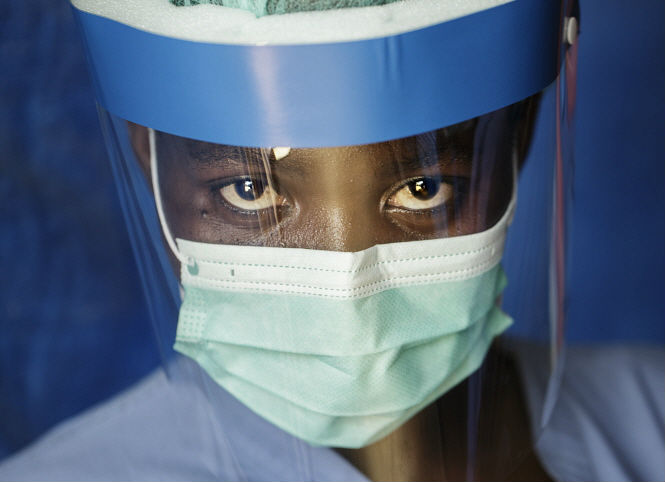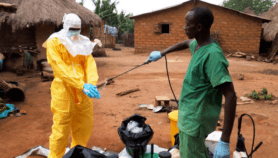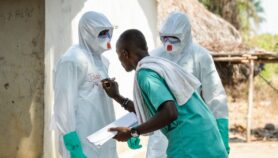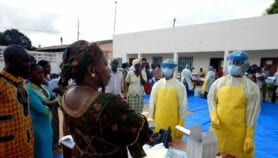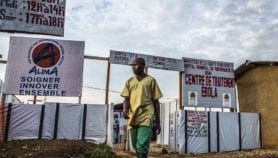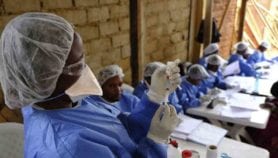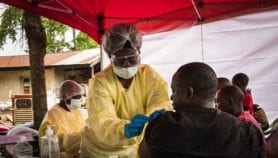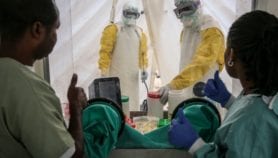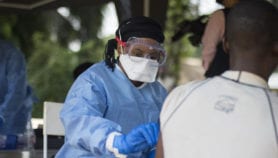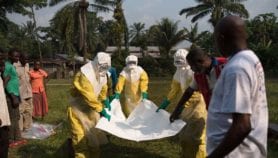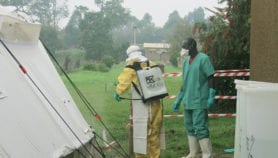By: Anita Makri
Send to a friend
The details you provide on this page will not be used to send unsolicited email, and will not be sold to a 3rd party. See privacy policy.
People in a crisis need a system that can receive knowledge from the ground as well as give science-based guidance.
The West Africa Ebola epidemic seemed to catch the world by surprise. Less surprising is the critical commentary running parallel to the scramble to respond. As with previous high-profile health emergencies, everyone is asking — perhaps prematurely, but also understandably — “what can we learn from this?”
Many of the early reflections on this question, including our own, touched on familiar weak links in global health, from fragile health systems to the delayed global response and lack of incentives for drug R&D. But as the virus kept spreading and taking lives, it became clear that fearful reactions were spreading just as fast, and a less familiar narrative began to emerge: the need to attend not just to sickness, but to its social repercussions.
Media reports exploring the human side of the crisis have tended to focus on the long-term health impacts and social stigma facing survivors. There were also reports of communities resisting the work of medical and humanitarian organisations; of how anthropologists worked to address this; and the role of overcoming fear and fostering trust between responders and the people affected by Ebola.
Following this trail led to revealing insights. Anthropologist Paul Richards, who works in Liberia and Sierra Leone, asked a meeting on lessons learned from Ebola in February why ambulances insisted on using sirens, especially on bush roads — the sound was unnecessarily alarming in an area already in the grip of fear. [1] At a separate meeting in the same month, social scientists Melissa Leach and Heidi Larson shared other social perspectives.
These challenges of emergency responses rarely come under the spotlight.
The collection we publish today delves into them through the twin threads of communication and social science. One thread is about health messages and control strategies, and how they are communicated between responders and communities and between organisations. The other is how social scientists can help understand the context in which communication, and the response more generally, takes place.
First-hand accounts and paradigm shift
Beth Smout, of the London School of Hygiene & Tropical Medicine, highlights communication as a vital ingredient in outbreak response. Writing while in Sierra Leone, Smout gives examples of tools used and information shared, looking at what has worked and what hasn’t. This overview article also features interviews with social scientist Melissa Leach, director of the Institute of Development Studies (IDS) and Rachel Aveyard from BBC Media Action.
Anthropologist Hannah Brown, from Durham University in the United Kingdom, has advised on the research included in the Spotlight, while in a ‘key resources’ article, medical doctor Rachel Thomas sets out the landscape of institutions and other partners involved in the response. A feature article by SciDev.Net regional coordinator Amzath Fassassi looks into the misinformation and rumours that circulated in Guinea and other affected countries.
“The global response can better recognise the human context in emergencies and craft communication so it works with, not against it.”
Anita Makri
Sylvie Briand, head of the WHO’s Pandemic and Epidemic Diseases Department, was one of the first UN officials to be alerted to the outbreak. In the first of the Spotlight’s three opinion articles she says that, by highlighting the role of social science, this crisis may signal a paradigm shift in global efforts to address emergencies.
But how exactly can social science help? Annie Wilkinson from the IDS draws from her research and experience of the outbreak to make the case for why and how anthropologists should have a seat at the emergency response table.
Rosamund Southgate, a doctor with Médecins Sans Frontières (MSF), describes the communication challenges and coordination failures that healthcare workers faced when interacting with people affected by the epidemic.
In a filmed interview, MSF’s head of communications, Polly Markandya, reflects on the charity’s experience with communications and dealing with fears around the epidemic.
For more first-hand accounts of institutional coordination and the human factor in the response, check out an audio slideshow featuring researcher Freya Jephcott from the UK’s University of Cambridge and IDS’ Annie Wilkinson.
Humanising the response
There’s no shortage of commentary on the lessons to be learned from this crisis, and more is sure to come. This collection articulates one of those lessons: that the global response can better recognise the human context in emergencies and craft communication so it works with, not against it.
What does this mean for preparedness? It’s worth taking a step back to consider this. Ebola, discovered in the 1970s, is just one of several emerging diseases and previous Ebola outbreaks had been relatively small. Also, the course of any epidemic will vary because of any number of factors, including living conditions, climate and the pathogen’s characteristics. From that perspective — and given limited resources — perhaps it's unrealistic to expect full readiness.
But readiness is not just about what happens before an emergency; it's also about the capacity to react to what happens as it starts, and as it progresses. The collection we publish today suggests that, on this, we can do better. There is evidence to draw from, some of which traditionally lies in the field of international development rather than in public health.
People in a crisis deserve a system designed to quickly learn what works and what doesn't in the specific context of each epidemic. And they deserve a system with the capacity to receive as well as give the information needed for effective emergency response. The voices that transmit local knowledge should feed into operations, just as scientific knowledge does.
Anita Makri is opinion and special features editor at SciDev.Net. @anita_makri
This article is part of our Spotlight, Managing health crises after Ebola.
References
[1] Catherine Grant What lessons can development learn from the Ebola crisis? (Institute of Development Studies, 27 February 2015)


